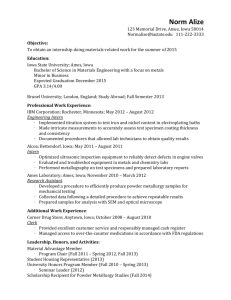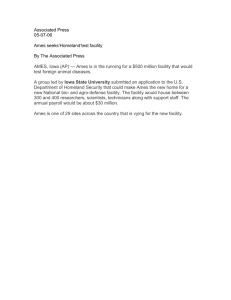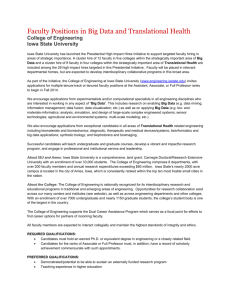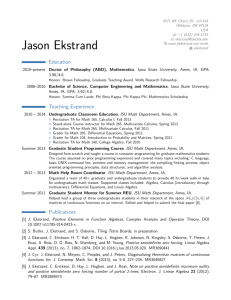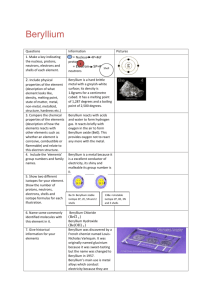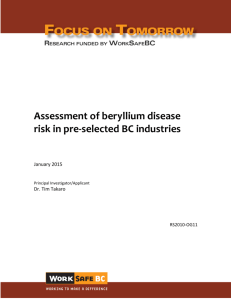fundscreening - Iowa State University
advertisement
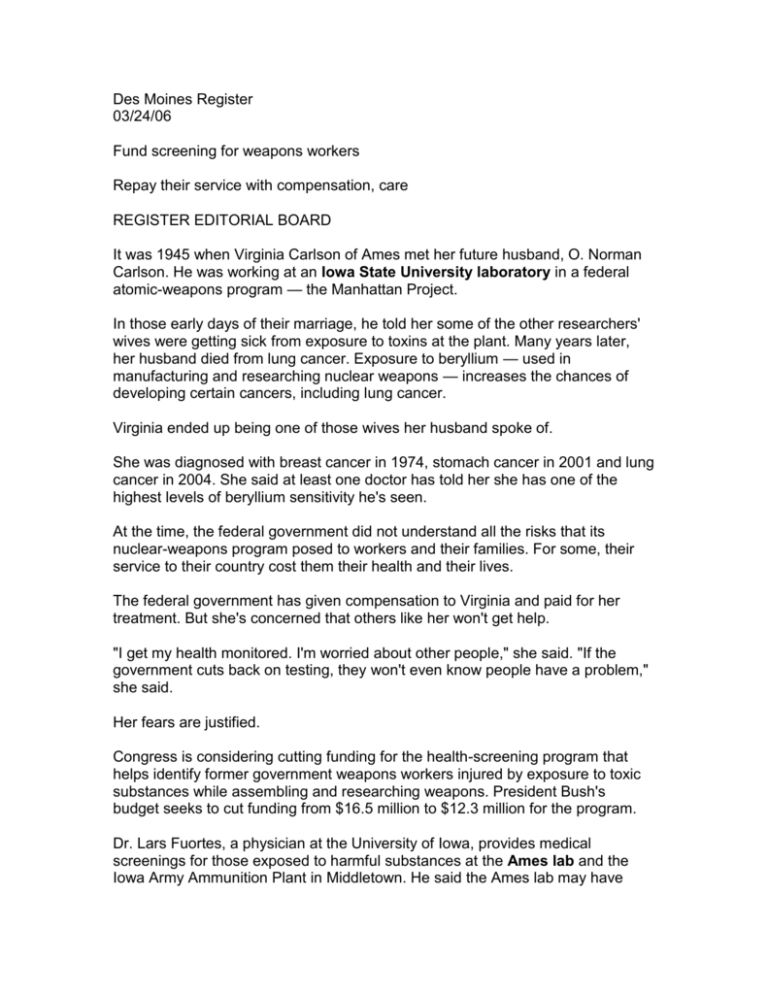
Des Moines Register 03/24/06 Fund screening for weapons workers Repay their service with compensation, care REGISTER EDITORIAL BOARD It was 1945 when Virginia Carlson of Ames met her future husband, O. Norman Carlson. He was working at an Iowa State University laboratory in a federal atomic-weapons program — the Manhattan Project. In those early days of their marriage, he told her some of the other researchers' wives were getting sick from exposure to toxins at the plant. Many years later, her husband died from lung cancer. Exposure to beryllium — used in manufacturing and researching nuclear weapons — increases the chances of developing certain cancers, including lung cancer. Virginia ended up being one of those wives her husband spoke of. She was diagnosed with breast cancer in 1974, stomach cancer in 2001 and lung cancer in 2004. She said at least one doctor has told her she has one of the highest levels of beryllium sensitivity he's seen. At the time, the federal government did not understand all the risks that its nuclear-weapons program posed to workers and their families. For some, their service to their country cost them their health and their lives. The federal government has given compensation to Virginia and paid for her treatment. But she's concerned that others like her won't get help. "I get my health monitored. I'm worried about other people," she said. "If the government cuts back on testing, they won't even know people have a problem," she said. Her fears are justified. Congress is considering cutting funding for the health-screening program that helps identify former government weapons workers injured by exposure to toxic substances while assembling and researching weapons. President Bush's budget seeks to cut funding from $16.5 million to $12.3 million for the program. Dr. Lars Fuortes, a physician at the University of Iowa, provides medical screenings for those exposed to harmful substances at the Ames lab and the Iowa Army Ammunition Plant in Middletown. He said the Ames lab may have caused the highest prevalence of beryllium lung disease of all the government facilities being screened. If funding is cut, it will make it harder for him to find and help the injured. And that process doesn't need to be more difficult. It took years for former workers at the Middletown plant to receive health care and compensation after being exposed to radiation and other harmful substances while assembling weapons between the 1940s and 1970s. Many got sick. Some died. And those seeking help were met with denials, red tape and multiple rounds of meetings and appeals. That was bad enough. But this proposed cut would prevent people from being screened in the first place. That's disgraceful. Members of the Iowa delegation must do everything they can to prevent that from happening.
